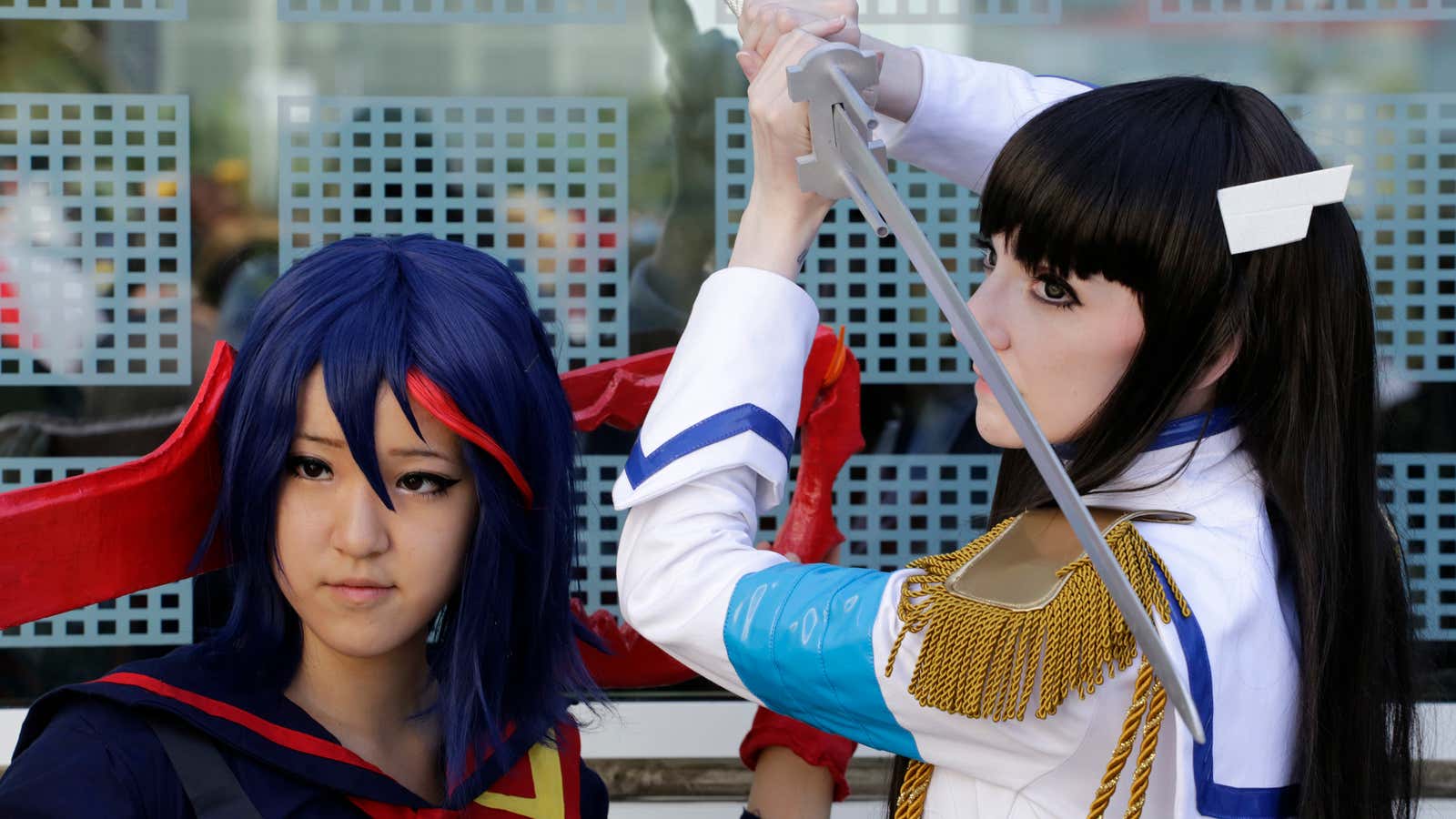Hit Chinese video streaming site Bilibili, once seen as a haven for subcultures like niche animation, has been making strides towards becoming a mainstream platform in recent years. But it is now facing a substantial backlash from some of its female users and brand partners, which accuse it of tolerating misogynistic content.
Founded in 2009, Bilibili has evolved from an online hub for anime, comics, and games (ACG) content to a YouTube-esque service that also offers mobile games and live broadcasting. The company went from a little-known website to a platform dubbed “the nearest thing China has to YouTube.” The Nasdaq-listed platform had around 197 million monthly active users in the third quarter last year, an increase of more than 50% from 2019. Its revenue, around half of which comes from mobile gaming, also reached $475 million during the period.
But with the expansion of the platform, its traditional focus on subcultures is causing trouble. The company has been under attack by feminists since it introduced popular Japanese cartoon Mushoku Tensei: Isekai Ittara Honki Dasuor, or Jobless Reincarnation: I Will Seriously Try If I Go to Another World, to its platform in January. The cartoon is based on a novel by Japanese writer Rifujin na Magonote, who tells the story of a depressed, unemployed, middle-aged man who is reincarnated in a fantasy world after he dies in a car accident.
The problem is with the protagonist’s remarks and behavior that, according to critics, amount to sexual harassment and insults to women. The character, who is born into a wealthy family in the new world, retains the memory and intellect of the middle-aged man he used to be. As such, when he has sexual fantasies about characters such as his own mother and some teenage girls as a teenage boy, critics point out these are actually the fantasies of an adult man towards minors, and want the show suspended.
“The show weaves misogyny into jokes and seemingly fun plot lines…while all the female characters, who are either super hot or caring, are all designed to serve the wishes of the male character,” wrote a critic on Chinese film review site Douban. Soon, hashtags like “I am an ordinary person,” and “I hate Mushoku Tensei” emerged on Weibo, with the topic viewed over 65 million times so far.
In light of the fierce criticism, on Sunday (Feb. 7) the platform quietly took down the cartoon, citing “technical issues.” But the controversy didn’t stop there. Some critics have sent complaints to some of the company’s partner brands, suggesting they cut ties with the site. Today, three brands, including a contact lens seller, a makeup brand, and a menstrual pad manufacturer have announced that they have either pulled adverts from Bilibili, or ended certain sponsorship deals with the website.
“Sofy firmly opposites and boycotts any kind of behavior or remarks deemed as insults to any women,” menstrual pad maker Sofy posted on its Weibo page. In a widely circulated poster, some users listed reasons for boycotting Bilibili, also citing its alleged blocking of people who voiced criticism of the cartoon. “We hereby demand the website to make a public apology for hosting misogynistic content including Mushoku Tensei, as well as get rid of all soft porn-type content on its site,” a line from the poster reads.
In response, Bilibili said in a statement today (Feb. 10) that it “will not disrespect any user,” and that it will from now on begin a one-month campaign to scrutinize “problematic content” that has a ”bad influence”—without naming this specific cartoon, or responding to a request for comment from Quartz. “We don’t want to see people engage in endless anger and arguments. We will work hard,” the company said.
Despite the episode, Bilibili seems set to continue its strong growth, at least in the capital markets. The company is reportedly seeking a secondary listing in Hong Kong, according to CNBC.
